Welcome to WHC Solar, where innovation meets sustainable energy solutions. In an era where clean and efficient power sources are paramount, lithium-ion batteries have emerged as a driving force behind the renewable energy revolution.
These advanced energy storage devices have revolutionized how we harness and utilize power, playing a pivotal role in everything from portable electronics to electric vehicles and grid-scale energy storage. In this article, we will discuss everything in detail from types of lithium-ion batteries to advantages and applications cases. Without any further delay, let’s begin with our article:
What is a Lithium-ion Battery?
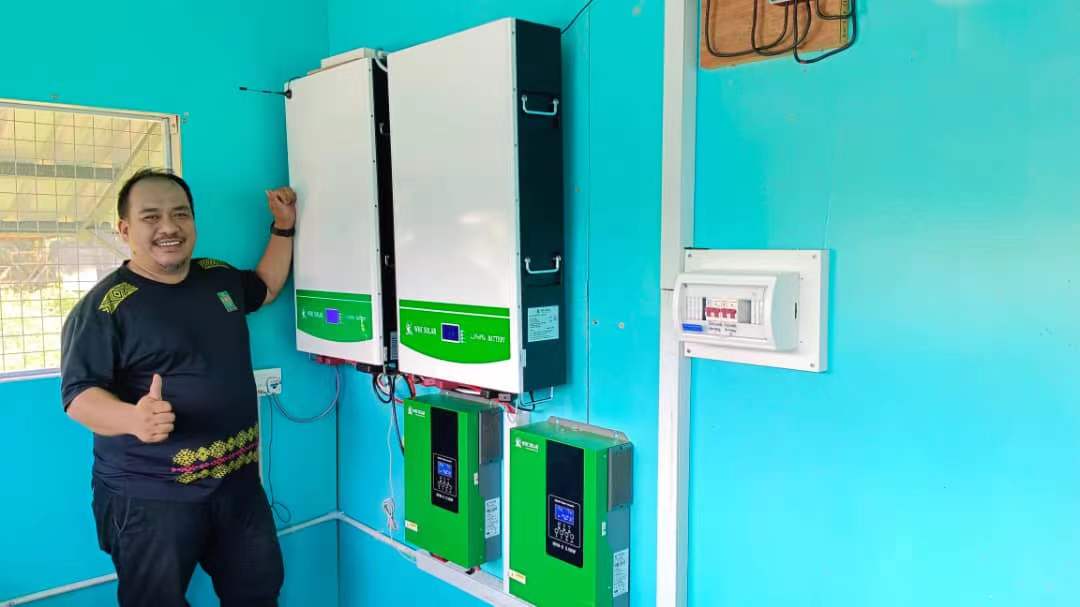
A Lithium-ion battery stands as a sophisticated and widely embraced energy storage device, admired for its operational efficiency and adaptability. Functioning on electrochemical principles, this advanced system transforms electrical energy into chemical energy during the charging process, subsequently reversing the procedure during discharge.
What sets Lithium-ion batteries apart is their dependence on lithium ions to convey the electrical charge. The lightweight nature and high electrochemical potential of lithium make it an optimal choice for energy storage. The organized movement of lithium ions within the battery’s structure ensures a consistent and efficient energy flow.
Moreover, the design of Lithium-ion batteries minimizes the memory effect, a phenomenon where batteries gradually lose their maximum energy capacity over time. This design feature enhances the overall durability and lifespan of the battery, rendering it a preferred choice across diverse applications, ranging from powering portable electronic devices to serving as the primary energy source in electric vehicles.
In short, lithium-ion batteries represent a pinnacle in energy storage technology, combining efficiency, reliability, and longevity. Their widespread use has not only transformed the consumer electronics landscape but has also become instrumental in advancing renewable energy and sustainable transportation.
Types of Lithium-ion Battery:
Lithium-ion batteries, the driving force behind modern portable energy solutions, come in various formulations tailored to specific needs. Understanding the diverse types of lithium-ion batteries is crucial as it allows us to appreciate their versatility and application-specific advantages.
In this exploration, we will figure out the ins and outs of two prominent variants:
1.Ternary Lithium batteries: Powering the electric revolution on our roads
2.Lithium Iron Phosphate batteries: Silently but efficiently fuel our energy storage needs.
Each type brings its own set of attributes, optimizing performance for the distinct challenges posed by electric vehicles and stationary storage applications, respectively.
1. Ternary Lithium Batteries:
Ternary lithium-ion batteries have established themselves as the go-to power source for electric vehicles (EVs), playing a pivotal role in driving the green transportation revolution. These batteries typically employ a cathode made of a combination of nickel, cobalt, and manganese, collectively known as NCM. The ternary composition enhances the overall performance of the battery, providing a compelling balance between energy density, power output, and thermal stability.
The advantage of ternary lithium batteries lies in their ability to deliver high energy density, enabling electric vehicles to cover longer distances on a single charge. Additionally, the NCM cathode formulation contributes to increased stability, mitigating concerns related to overheating and ensuring a safer operation for EVs.
2. Lithium Iron Phosphate (LiFePO4) Batteries:
Lithium Iron Phosphate batteries, commonly referred to as LiFePO4 batteries excel in applications where energy storage and longevity take precedence. Widely utilized in renewable energy systems and stationary storage solutions, LiFePO4 batteries are distinguished by their cathode material, iron phosphate.
The unique structure of LiFePO4 imparts several advantages, including enhanced safety, prolonged cycle life, and excellent thermal stability. These attributes make them an ideal choice for residential and commercial energy storage applications, where reliability and longevity are paramount.
LiFePO4 batteries are celebrated for their ability to sustain a large number of charge-discharge cycles without compromising performance, making them a cost-effective and durable solution for applications beyond the mobile and automotive sectors.
In short, the tailored characteristics of ternary lithium-ion batteries cater to the dynamic power demands of electric vehicles, ensuring optimal performance and safety. On the other hand, Lithium Iron Phosphate batteries shine in stationary applications, offering efficient and enduring energy storage solutions for a sustainable and reliable power supply.
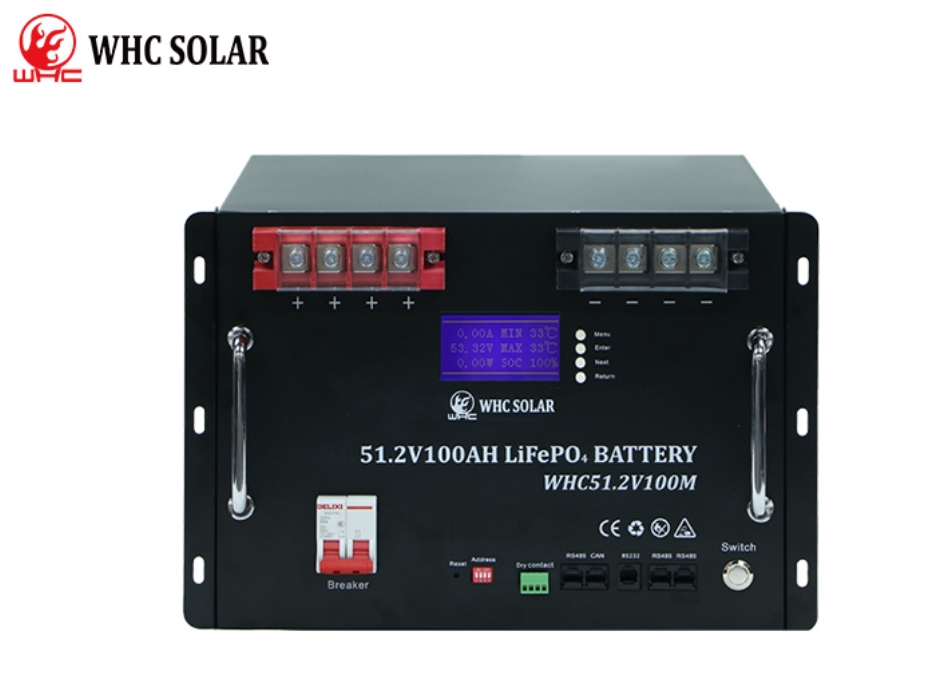
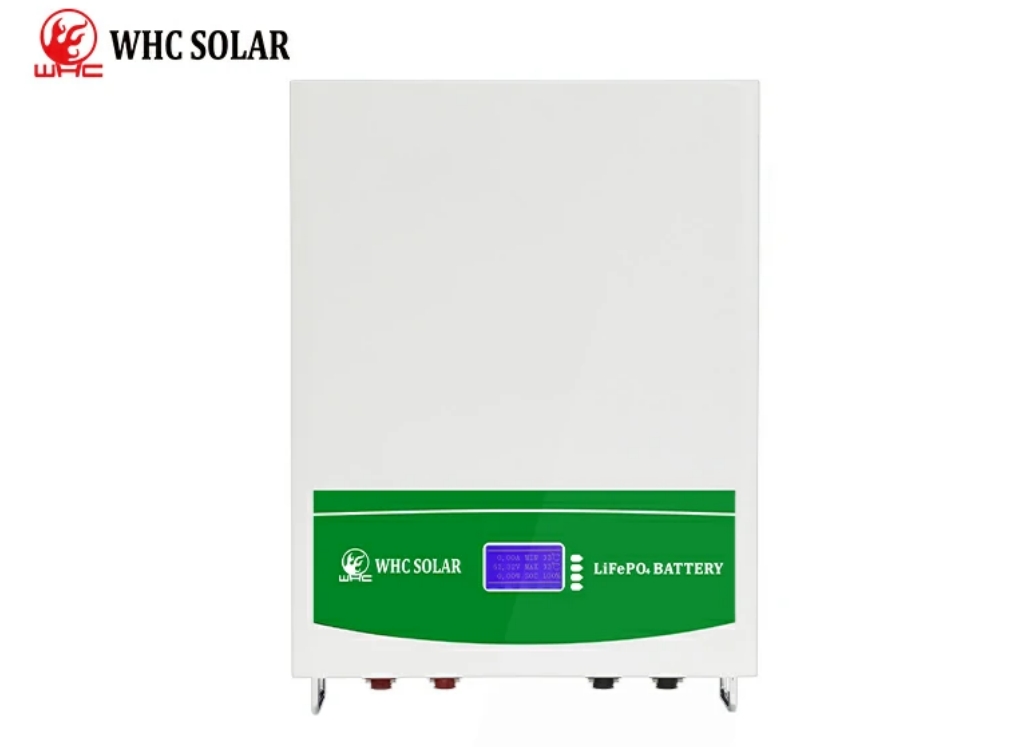
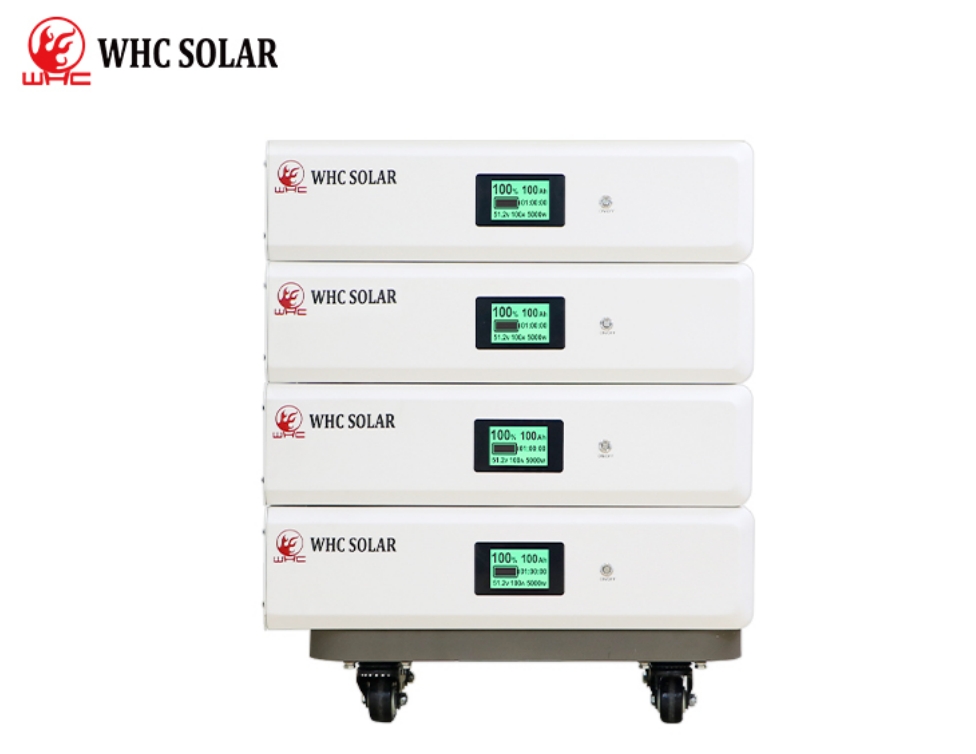
What are the advantages of applying Lithium-ion batteries to an Energy Storage System?
The application of lithium-ion batteries to Energy Storage Systems (ESS) comes with a multitude of advantages, making them a preferred choice across various sectors. Here’s a detailed exploration of these benefits:
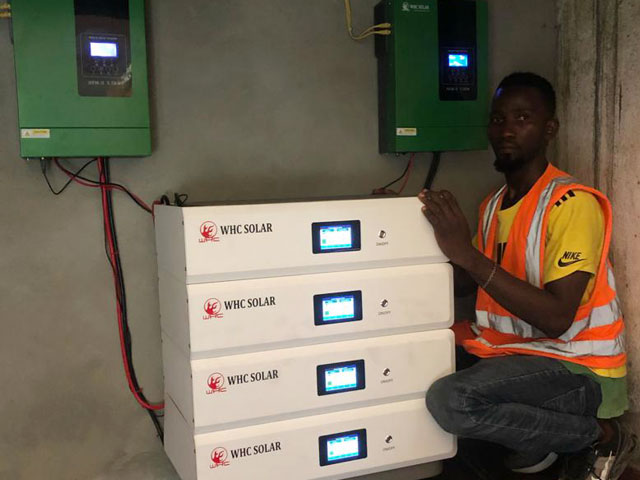
1. High Energy Density:
Lithium-ion batteries boast a remarkable energy density, signifying their ability to store a substantial amount of energy in a relatively small and lightweight package. This characteristic is particularly advantageous in scenarios where space is limited, allowing for more compact and efficient energy storage systems.
2. Long Cycle Life:
Lithium-ion batteries exhibit an impressive cycle life, referring to the number of charge-discharge cycles they can undergo while maintaining performance. This longevity is crucial for applications demanding consistent and reliable energy storage over extended periods, such as in residential solar installations and grid-scale storage projects.
3. Fast Charging and Discharging:
The design of lithium-ion batteries enables rapid charging and discharging, reducing downtime and improving the responsiveness of energy storage systems. This feature is invaluable in applications where quick bursts of power are required, such as in smoothing out fluctuations in renewable energy generation or responding to sudden changes in energy demand.
4. Efficiency:
Lithium-ion batteries exhibit high round-trip efficiency, meaning the majority of the energy input during charging is successfully stored and then released during discharging. This efficiency is vital for minimizing energy losses within the system, ensuring that stored energy is effectively utilized when needed.
5. Versatility:
Lithium-ion batteries are versatile and adaptable to various applications, from residential solar energy storage to grid stabilization. Their modular nature allows for scalability, enabling the creation of energy storage systems tailored to specific requirements. This versatility makes them suitable for a wide range of scenarios, contributing to the flexibility of the energy grid.
6. Reduced Maintenance:
Compared to traditional lead-acid batteries, lithium-ion batteries require minimal maintenance. They do not suffer from issues like sulfation, which can affect the performance and lifespan of lead-acid batteries. This results in lower operational costs and greater reliability over the long term.
7. Environmental Impact:
Lithium-ion batteries are considered more environmentally friendly compared to some alternative technologies. With the increasing focus on sustainability, the ability to store and utilize energy efficiently without relying on fossil fuels aligns with global efforts to reduce carbon footprints and combat climate change.
8. Safety Features:
Modern lithium-ion batteries incorporate advanced safety features to mitigate the risk of thermal runaway or overheating. These safety mechanisms, such as thermal management systems and protective circuitry, enhance the overall safety of energy storage systems, making them suitable for a wide range of applications.
In conclusion, the integration of lithium-ion batteries into Energy Storage Systems brings about a paradigm shift in energy management, offering a combination of high performance, reliability, and environmental sustainability. As technology continues to advance, these advantages position lithium-ion batteries as a key player in shaping the future of energy storage solutions across the globe.
What are the brands of lithium-ion batteries?
Lithium-ion batteries, a cornerstone of modern energy storage, are offered by various reputable brands known for their quality and innovation. Some prominent names in the lithium-ion battery market include industry leaders like Tesla, Panasonic, WHC Solar, LG Chem, Samsung SDI, and Sony.
These brands are recognized for their commitment to advancing battery technology, ensuring reliability, and contributing to the widespread adoption of lithium-ion batteries in applications ranging from consumer electronics to electric vehicles and renewable energy storage systems.
Additionally, several other manufacturers and emerging players continue to make significant contributions to the evolving landscape of lithium-ion battery technology.
Application cases of WHC Lithium-ion battery and Energy Storage Applications:
WHC Solar, a leading provider of innovative energy solutions, has witnessed remarkable success in catering to diverse energy storage needs worldwide. With satisfied customers spanning countries like Myanmar, Nigeria, the Philippines, and beyond, the following case study highlights the positive impact of WHC Lithium-ion batteries on businesses and communities.
In Myanmar, WHC Solar addressed the challenge of unreliable power supply affecting daily life and business operations for a client in the residential and commercial sectors. The implementation of WHC Lithium-ion batteries in both residential and commercial properties proved to be a transformative solution.
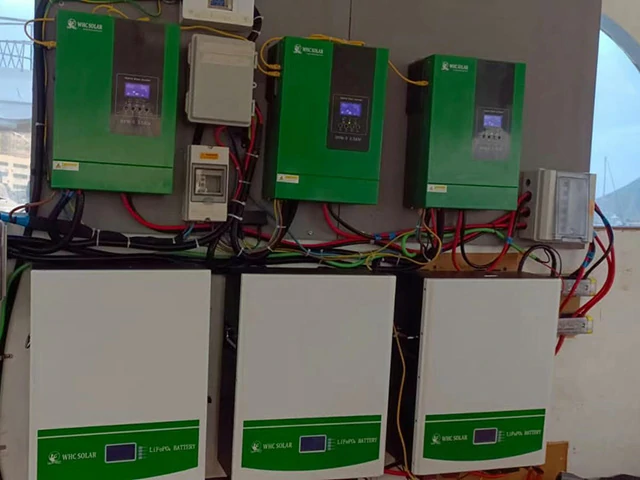
The results were evident through enhanced energy reliability, mitigated dependency on the grid, and substantial cost savings. Users provided positive feedback, endorsing the product’s efficiency and durability. This case exemplifies the impact of WHC Lithium-ion batteries in advancing sustainable living and securing a consistent and reliable energy source for both households and businesses in Myanmar.
Meanwhile, in Nigeria, WHC Solar played an important role in powering industrial growth for a manufacturing client facing challenges in managing energy costs and ensuring uninterrupted production. The WHC solution involved the seamless integration of Lithium-ion batteries into the existing energy infrastructure.
The outcomes were noteworthy, with a substantial reduction in energy costs, heightened production efficiency, and a notable decrease in downtime. Encouraged by these positive results, the client is now planning to expand the use of WHC batteries across multiple facilities. This case underscores the effectiveness of WHC Lithium-ion batteries in driving industrial
growth by optimizing energy consumption and bolstering operational reliability in the manufacturing sector in Nigeria.
Customers across various countries, not limited to Myanmar and Nigeria, have reported high satisfaction with WHC Lithium-ion batteries. The batteries have consistently proven their reliability, durability, and efficiency, contributing to the growth and sustainability of businesses and communities.
Future Collaborations:
The success stories from Myanmar, Nigeria, the Philippines, and other countries have sparked a growing interest in WHC Lithium-ion batteries. A significant number of satisfied clients are planning to expand their usage and invest in additional WHC products, solidifying the company’s position as a trusted global provider of advanced energy storage solutions.
Energy Storage Applications:
Energy storage applications play a crucial role in enhancing the efficiency and sustainability of electrical energy use. These applications include various technologies designed to capture, store, and release energy when required.
From smoothing out intermittent renewable energy generation to providing backup power during outages, energy storage applications contribute significantly to grid stability. They also play a key role in improving the efficiency of renewable sources, contributing to a more resilient and sustainable energy future.
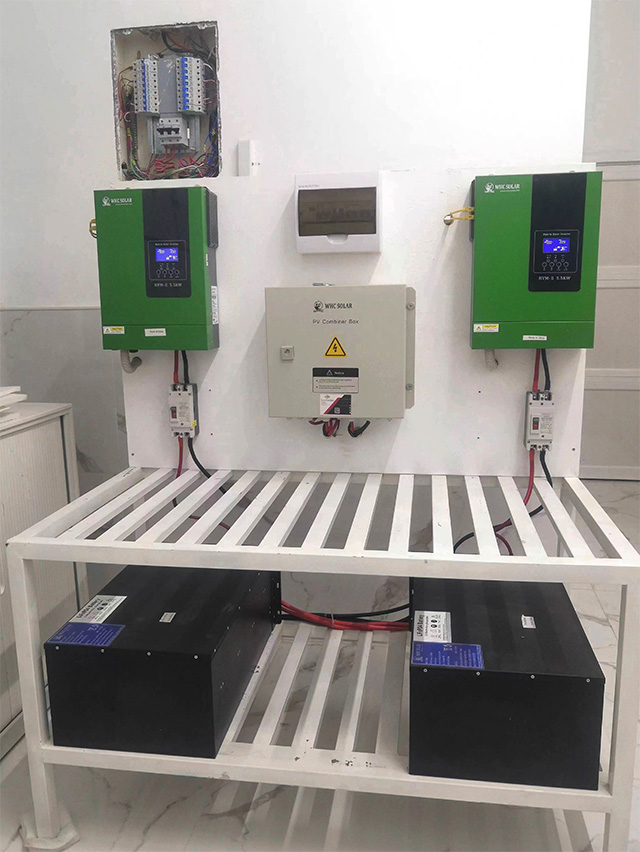
Whether implemented in residential solar installations, grid-scale projects, or electric vehicles, energy storage technologies play a vital role in shaping a reliable, flexible, and environmentally conscious energy landscape.

